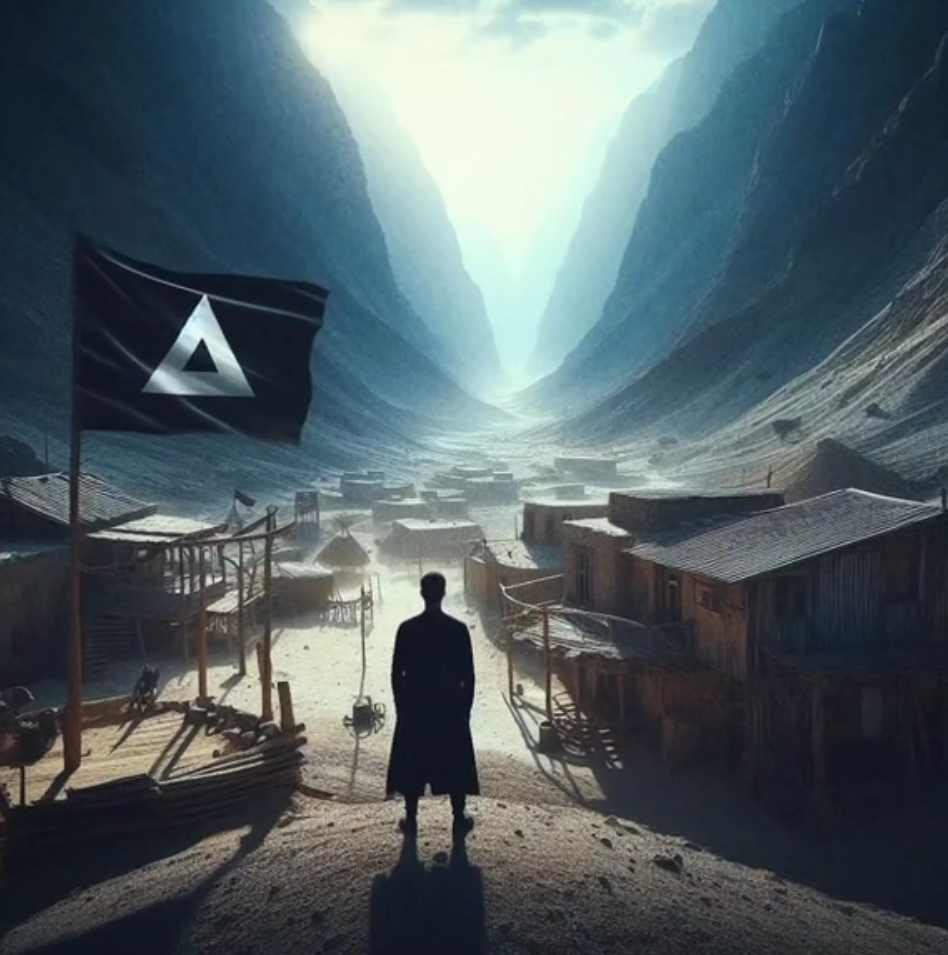Zaar memories #1

He didn't know how he got here. It wasn't that he was led. More like… he’d stopped resisting.
The border wasn’t barbed wire. Not a wall. Not an enlightenment. It was exhaustion. A dull, deep exhaustion from being who he was taught to be.
Exhaustion—that's your ticket. Welcome.
No arches. No speeches. No skulls on pikes. Right at the entrance, a woman in white, about forty, was wiping dust from the low wooden steps. She smiled. A real smile. You don’t get smiles like that at the supermarket or on Tinder.
It’s the smile you get when you’re not a threat, just… a person.
He took a step.
Clay houses with thick walls. Simple, with flat roofs. The air was clean, like after a thunderstorm, though it hadn’t rained. No ads. No logos. No screaming children.
The people in white weren't monks or fanatics. Someone was tending a garden bed, someone was slicing bread. Someone was teaching children in the shade of an olive tree that grew in the center of a sand circle.
He heard laughter. Sincere, calm. Without sarcasm, without that deep-seated pain.
The smiles didn't seem like happiness. It was... the absence of fear.
He was given simple clothes. White. No buttons, no brand. They had the pleasant smell of dust and the hands of the one who sewed them. He slept on the floor. A mat, a blanket. That was all.
No one told him what to do. But every day, without words, a place was found for him. Someone would call him over to help with dough. Someone else, to sort tools. Someone would just sit beside him in silence as he watched the fire.
There were no clocks here. Time was measured in tasks, in the ache of a back, in waking up.
He overheard two of the white-robed people talking.
“...still, if a person feels guilt, it means they’re alive.”
“Deeper. Guilt is the whisper that says, ‘you can be better.’ But we’re used to silencing it.”
“Like pain. Pain is a help, not an enemy.”
He understood: they weren't teaching each other. They were reminding.
Not because someone had forgotten. But because this is how reality is fortified.
The Greys
Sometimes he saw them. Pale faces, completely shaven—not just their heads, but eyebrows, eyelashes, everything.
Their clothes were a heavy, grey fabric, tied tightly. They didn’t smile, didn’t greet anyone. Their gazes were turned inward. And yet—not malice. Not contempt.
They existed somewhere between the sky and the soil, and every step was as if conscious down to the atom.
One of them once just sat down next to him. In silence. Stared at the same spot on the wall. For about ten minutes. Then he stood, nodded—and was gone.
The Blacks
He saw one.
At dawn. By the well. The figure stood with his back to him. The wind barely stirred his long, black robe.
A huge scar crossed the back of his head like a crack in glass. He was drinking water, but it seemed he wasn't just drinking.
It was as if he were speaking with it. Through his throat, into his lungs, into his cells.
He turned. And that one look was enough.
He didn’t remember the face. Only… the feeling of his soul being turned inside out, shaken free of lies—and sewn back up.
The Blacks didn’t walk in groups. They were almost never seen. But they were there. Like the shadow of a mountain—it seems it isn’t there, until you step into it and feel the temperature drop.
He tried to write things down. But paper felt superfluous.
Everything that happened—happened within.
He wasn’t given teachings. Only food, work, and the chance to be.
No one asked who he had been. Only—who he wanted to become.
He asked one of the people in white:
“What if I forget all this and go back?”
The man shrugged.
“You’ll return a different person. Which means you won’t forget.”
